How did the Soviet government and now modern Russia destroy Ukrainian Christmas?
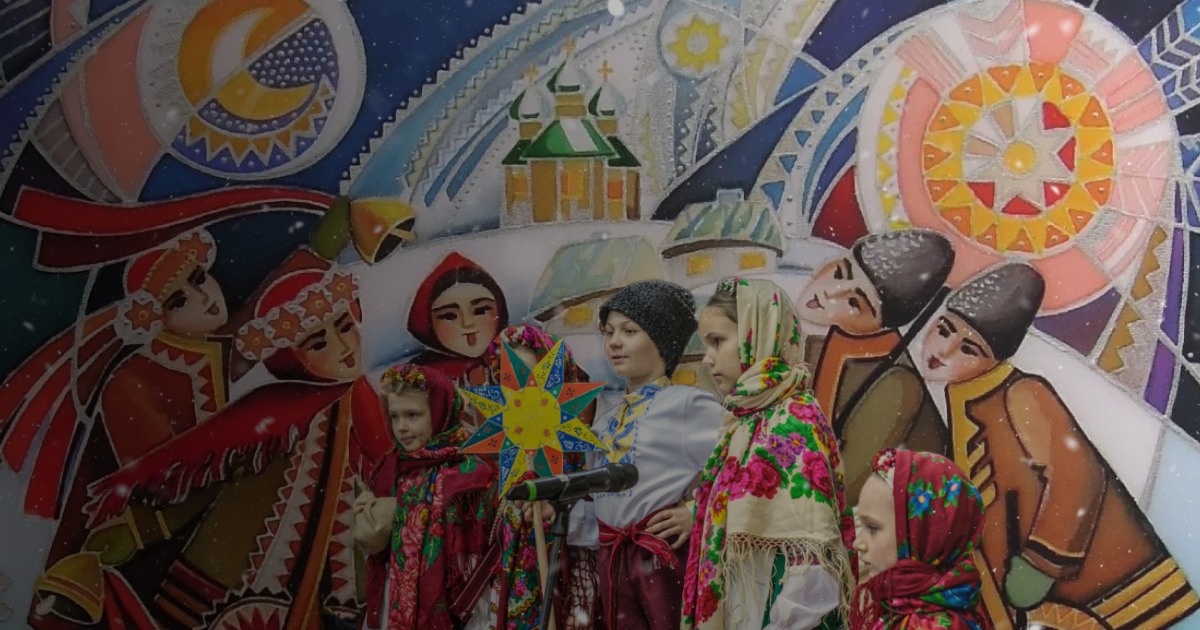
Christmas has been the main holiday of the year for the Ukrainian people since ancient times. It was traditionally accompanied by a holy supper, ancient rituals and carolling.
However, this holiday was banned until Ukraine regained its independence in 1991. In the Soviet Union, the authorities tried to oust Christmas from the festive calendar and adapt its elements to their own needs.
Read about the origins of the holiday in Ukraine, the struggle for its celebration, repressions and Russian terror of the Ukrainian population at Christmas during the full-scale invasion in our material.
Cossack Christmas
The celebration of Ukrainian Christmas on December 25 dates back to the times of the Cossacks (15th - 18th centuries — ed.). Ukrainian writer-memoirist and Hetmanate figure Yakiv Markovych recalled that the epicentre of Cossack celebrations was in Baturyn (Chernihiv region in northern Ukraine, near the capital Kyiv — ed.) and later in Hlukhiv (Sumy region in the north of Ukraine, bordering Russia — ed.). The Cossack military court was based here.
At Christmas, the clergy, general officers (the highest state administration in the Hetmanate — ed.), colonels, officials of the largest central institutions, and officers gathered there.
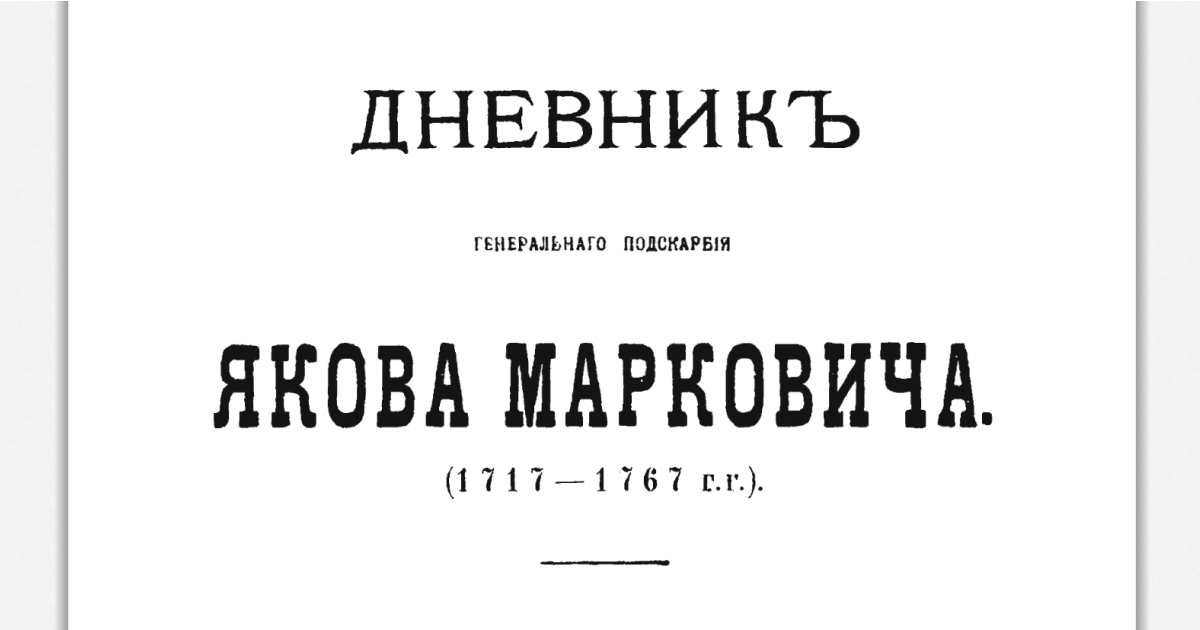
Yakiv Markovych writes that decorative elements became more expensive during Christmas: prices for renting houses and food were raised, and firewood and candles were more expensive than black caviar.
The celebrations began in the morning. People greeted each other with gifts: most often, these were sweets and exotic items: black caviar, wines and candied fruits and vegetables that were brought from the south, walking canes, watches, silk belts and scarves.
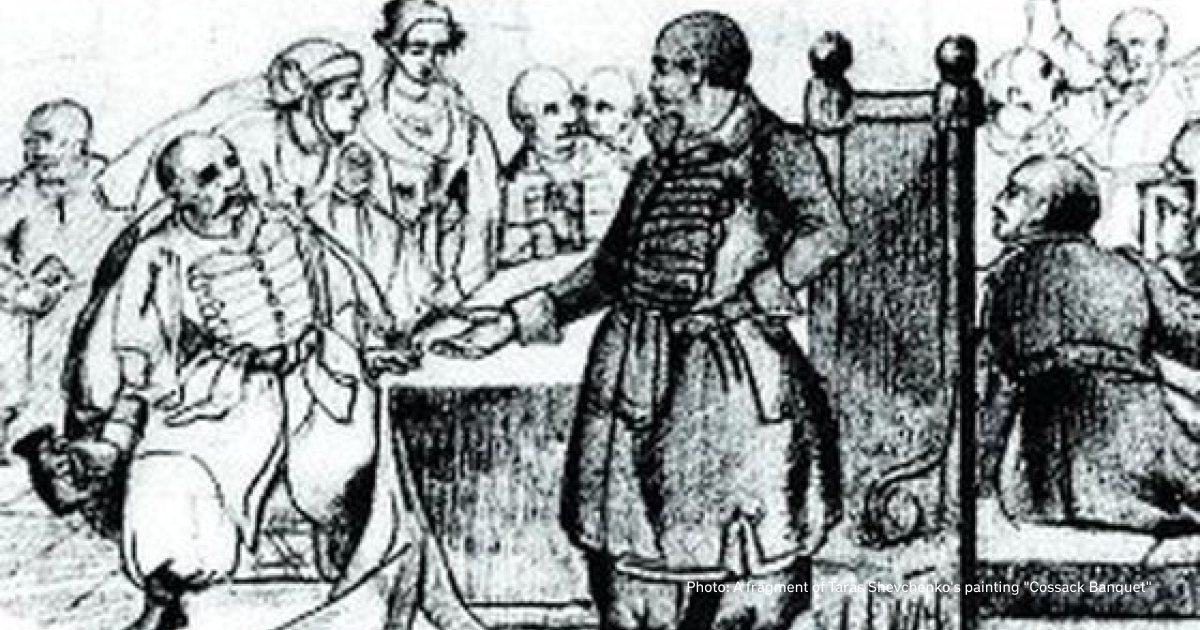
The main dish of Christmas Eve was kutia (boiled wheat or barley grains with honey — ed.), and the next day, the tables were filled with various meat dishes. The traditions of Christmas celebrations were spread not only to Cossack celebrations but also throughout Ukraine.
The destruction of Christmas in the Soviet era
The Russian Empire, which existed until 1917, refused to switch to the Gregorian calendar, which Pope Gregory XIII introduced because the Julian calendar's calculations were wrong.
After the end of the empire, Soviet Russia switched to the Gregorian calendar. The Russian Orthodox Church refused to switch as soon as the change was introduced.
The priests explained this by the imperfections of the Gregorian calendar, Christian traditions, and the painful attitude of the believers to change, historian Oleh Pavlyshyn wrote for RFERL.
In addition, the USSR government decided to separate the church from the state and proclaimed a course to build an atheistic society. The confrontation between religion and communist ideology began.
"The main task is to promote the liberation of the working masses from religious prejudice," the Council of People's Commissars announced on January 23, 1918.
The Bolsheviks (members of the left-wing radical wing of the Russian Social Democratic Workers' Party who committed terror for the sake of power — ed.) tried to fill the traditional Christmas ritual with new revolutionary meaning. The Soviet authorities wanted to eradicate folk customs in order to erase the identity of Ukrainian Christmas, including the religious and biblical music.
"The carol concerts that [Oleksandr] Koshyts [Ukrainian choral conductor] used to hold so well are now banned, and as a result, the church is full of people — apparently for the greater triumph of anti-religious propaganda: again, it is difficult to understand the senseless ban that leads to completely opposite consequences," Ukrainian statesman and literary critic Serhii Yefremov wrote in his diary in 1928.
The USSR authorities proposed introducing "holidays and customs that would meet the requirements of socialist cultural construction" — everything was done to make the working masses work harder, despite religious prejudices. That's how special "Soviet carols" appeared (a carol is a Christmas song that wishes the hosts happiness and praises Christ — ed.)
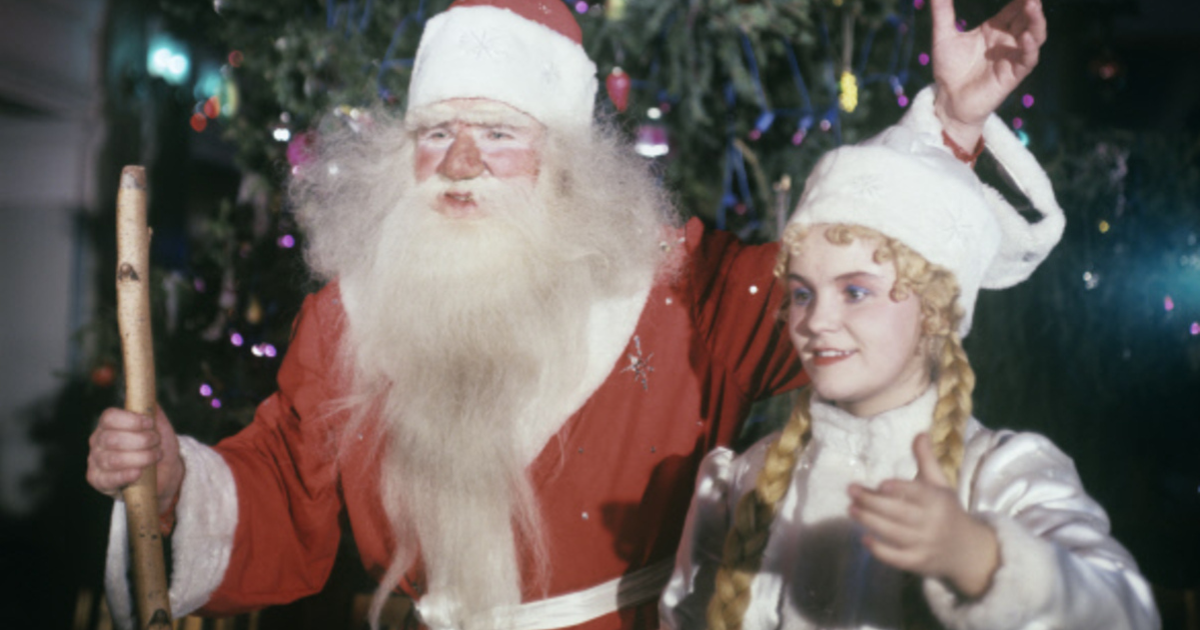
The recipe for such a carol is simple: replace all references to Biblical characters with the party, the proletarians, or Lenin (Vladimir Lenin was a Russian and Soviet politician and organiser of the "red terror" against class enemies and civilians — ed.) Only the Star of Bethlehem was allowed to remain, but only if it had a "revolutionary" meaning.
From a Christmas carol:
"Good evening to you, dear host, rejoice!
Rejoice, the world, the Son of God is born!
Lay out the tables and everywhere with carpets, rejoice!
Rejoice, the world, the Son of God is born!"
the Bolsheviks made:
"Good evening, free proletarian.
Rejoice, oh, rejoice, the world,
A new world has been born."
Despite the ban on Christmas, Ukrainians continued to go to church on January 7 (according to the Julian calendar). So, the communists began to promote the New Year as the number one winter holiday. This is how the idea of Did Moroz (lit. Old Man Frost), who comes to children with gifts on January 1, was created.
Although Did Moroz is known in mythology as the evil spirit of frost, in the Soviet Union, it was more like Santa Claus — a fairy-tale grandfather from the Polar Pole with gifts.
Although Christmas was an official public holiday, New Year's Eve was celebrated much more colourfully: special music programmes and films were made, festivities were organised around the local Christmas tree, and fireworks were launched. On Christmas Day, people often gathered around the family table at home.
It was a way to minimise the influence of the church and church traditions associated with Christmas.
The murder of the author of the world-famous Shchedryk
Another proof that the Soviet government tried to destroy Christmas is the Carol of the Bells.
Die Hard 2, Home Alone, Harry Potter and the Prisoner of Azkaban, A Christmas Carol, The Muppets, Santa Claus, South Park, and The Princess Switch are just a few of the films where the Ukrainian Christmas carol Shchedryk, composed by Ukrainian Mykola Leontovych, was played.
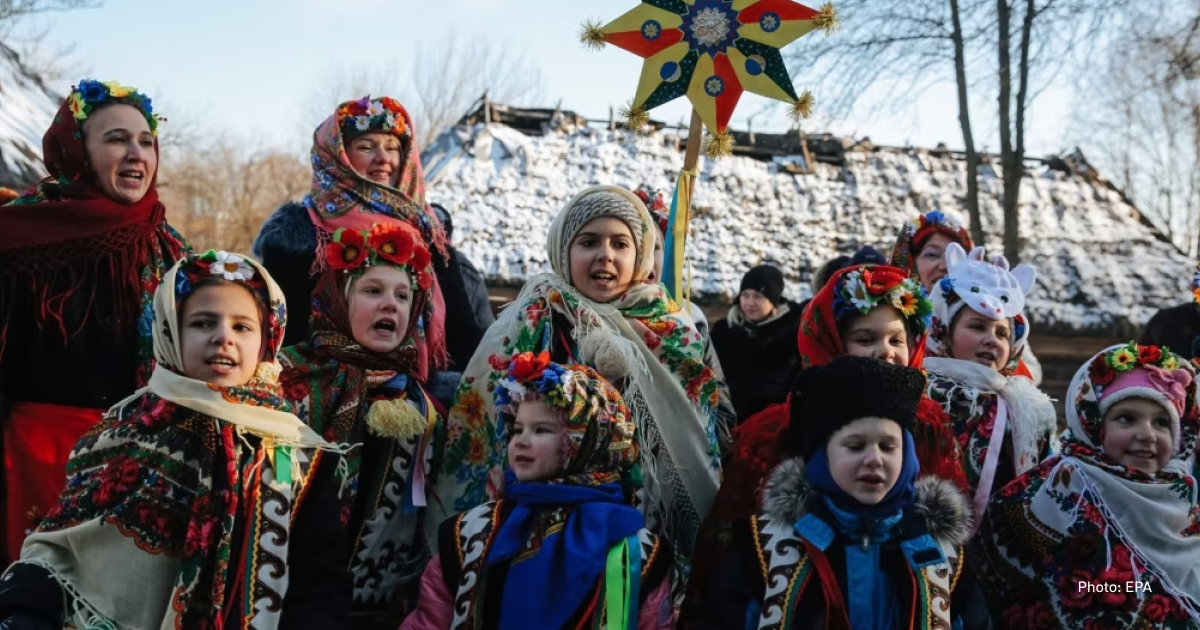
Shchedryk was first performed in 1916 by the Kyiv University Choir, where Leontovych worked. The carol was performed abroad in 1922 at Carnegie Hall in New York.
Shchedryk gained worldwide fame and recognition. However, not the author Mykola Leontovych. From the late 1920s, the Soviet authorities began to persecute and arrest Ukrainian intellectuals — some were imprisoned for trumped-up cases, others were sent to concentration camps, and some were killed.
On January 23, 1921, Ukrainians performed Shchedryk at the Théâtre des Champs-Elysées in Paris. On January 23, 1921, an agent of the All-Russian Extraordinary Commission for Combating Counterrevolution and Sabotage killed Mykola Leontovych with a rifle shot.
The forbidden holiday or the arrested Koliada
On January 12-14, 1972, Ukrainian intellectuals celebrated Christmas. Despite the fact that the Soviet authorities opposed such gatherings, poets Vasyl Stus, Ivan Svitlychnyi, and politician Viacheslav Chornovil ignored the ban and carolled in Lviv (in western Ukraine, 60 kilometres from the Polish border — ed.) and Kyiv (the capital of Ukraine — ed.).
The KGB (USSR State Security Committee) arrested 14 people, including Stus, Chornovil, and Svitlychnyi. The KGB document contained lists of addresses where the carolers were to visit.
The order stated: "Nationalist-minded individuals intend to organise groups from among students of the Kyiv State University, Polytechnic Institute and creative intelligentsia to conduct carolling in Rusanivka, Darnytsia, Sviatoshyno, Akademmistechko, as well as in the centre of Kyiv."
Already on 13 January, the KGB reported on the launch of Operation Blok, which was aimed at "neutralising" people who could spread anti-Soviet politics (the celebration of religious holidays contradicted the USSR's policy of building an atheistic society — ed.) in particular, was considered to be carolling and singing.
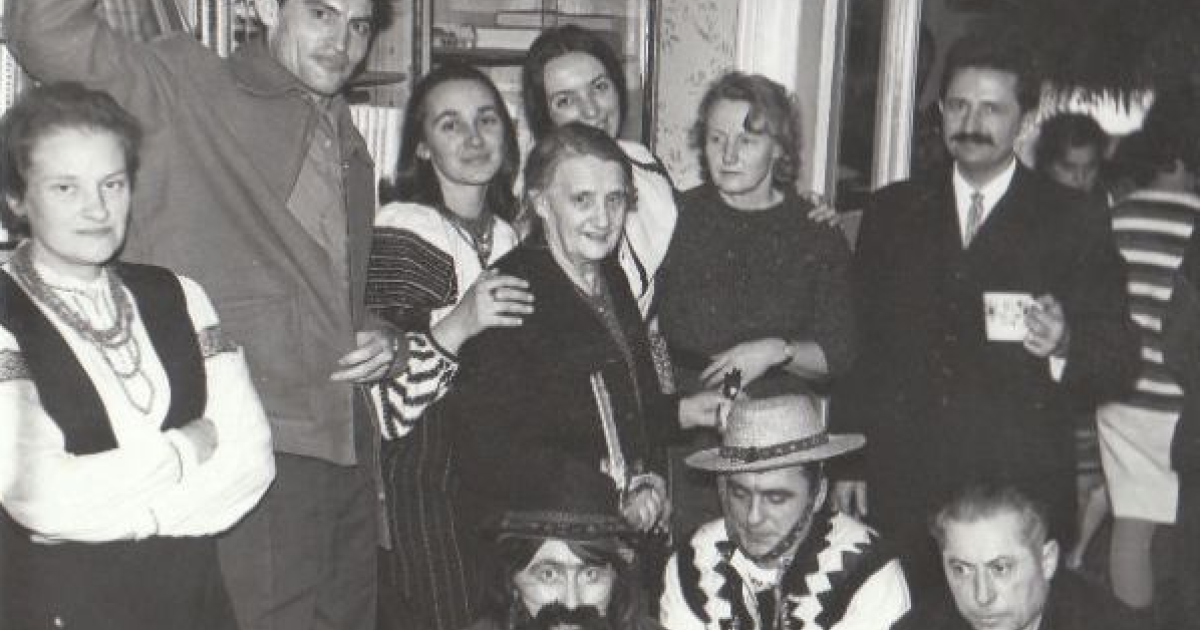
Most arrested were sentenced for "anti-Soviet agitation and propaganda" and imprisoned for 5-7 years in strict regime camps and 3 years in exile (a criminal punishment that involves the removal of a person to a special camp — ed.).
After this case, Vasyl Stus was arrested for the first time. The writer was held in a pre-trial detention centre for nine months and then imprisoned for 5 years and 3 years in exile in the camps of Magadan (a city in Russia located almost 10,000 kilometres from Stus's native Donetsk — ed.)
Almost all of his manuscripts were destroyed in exile. He was released in 1979. However, later, in 1980, he was again convicted for his pro-Ukrainian views to 10 years in a strict regime camp and 5 years in exile, where he died.
Christmas during the full-scale invasion
Modern Ukrainian Christmas is different from how it was celebrated in the past.
Although Ukrainians secretly celebrated Christmas during the Soviet Union, today their traditions are returning: cooking 12 dishes (compared to the number of apostles and months in a year — ed.), the main one being kutia (boiled wheat or barley with honey — ed. ), one should not eat all day before Christmas Eve until the first star appears in the sky, setting up didukh (a sheaf of wheat symbolising the arrival of ancestors for the holidays — ed.), cuckooing under the table for a successful harvest and good farming, setting up a Christmas "spider" (a straw decoration that was supposed to absorb negative energy; a straw mobile, himelli — ed.).

However, modern Russia is still trying to destroy this tradition — now by shelling Ukrainian cities.
On January 7, 2023 (when Christmas was still celebrated according to the Julian calendar; in the summer, changes were made, and Christmas was shifted to December 25 — ed.), Russians fired 19 times at the territory of the Kherson region in southern Ukraine with artillery, mortars and tanks. One person got injured.
The Russian army launched seven missile attacks on Kramatorsk in the Donetsk region in the east of the country and two on Kostiantynivka. One person was killed in a Russian missile strike on Merefa in the Kharkiv region, which borders Russia.


